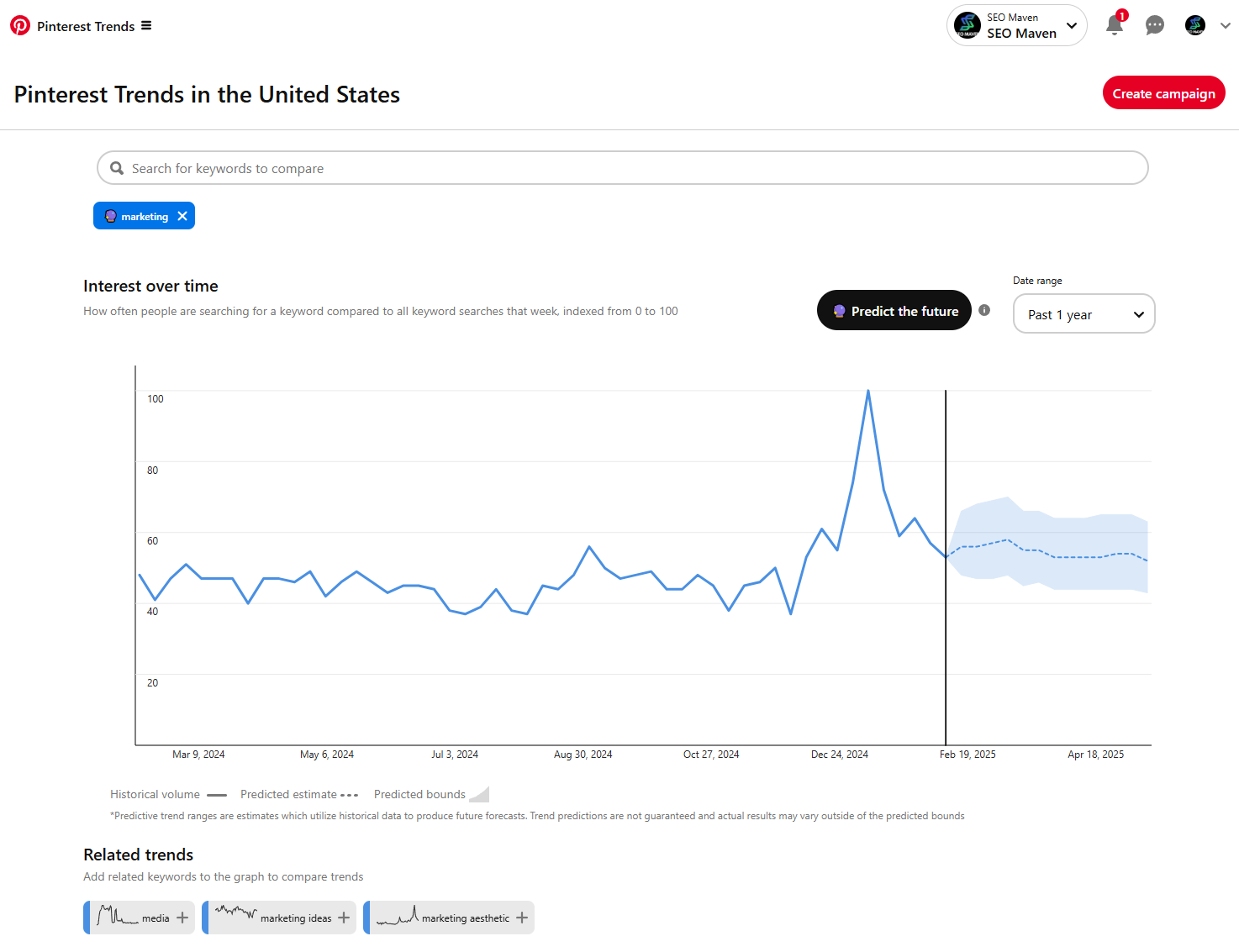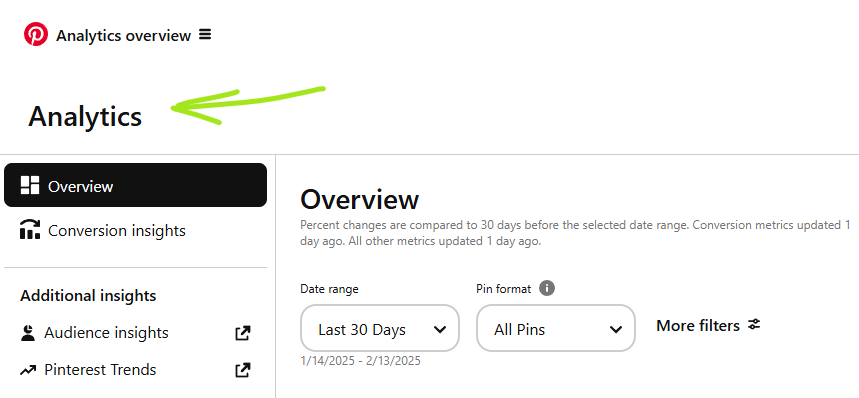Are you leveraging the full potential of Pinterest to boost your online presence and drive substantial traffic to your website? With over 522 million monthly active users, Pinterest offers a goldmine of opportunities for businesses to showcase their products, services, and content. Unlike traditional social media platforms, Pinterest functions as a visual search engine, making it a unique and powerful tool for marketers.
In this comprehensive guide, we’ll explore five proven Pinterest marketing strategies that can significantly increase your website traffic and enhance your overall digital marketing efforts. Whether you’re a seasoned Pinterest user or just starting out, these tactics will help you optimize your presence and achieve remarkable results.
Optimizing Your Pinterest Profile for Maximum Impact
Your Pinterest profile serves as the face of your brand on the platform. It’s crucial to optimize every element to make a strong first impression and improve your discoverability. Let’s dive into the key aspects of profile optimization:
Crafting an Attention-Grabbing Profile Name and Description
Your profile name and description are prime real estate for incorporating relevant keywords. Choose a name that clearly represents your brand and includes your most important keyword. For the description, craft a concise yet compelling summary of what you offer, weaving in 2-3 key phrases that your target audience might search for.
Selecting the Perfect Profile Picture
Choose a high-resolution image that represents your brand well. For businesses, this is typically your logo. Ensure the image is clear and recognizable even when scaled down to a thumbnail size. Remember to include your primary keyword in the image file name for an extra SEO boost.
Claiming and Verifying Your Website
Claiming your website on Pinterest is a crucial step that allows you to access advanced features and analytics. It also helps Pinterest understand the connection between your profile and your website, potentially improving your content’s visibility. Follow these steps to claim your website:
- Go to your account settings
- Click on “Claim”
- Enter your website URL
- Choose a verification method (meta tag, HTML file, or DNS record)
- Follow the instructions to complete the verification process
Creating Keyword-Rich Boards
Organize your content into relevant boards with clear, keyword-optimized titles and descriptions. This not only helps users find your content more easily but also signals to Pinterest’s algorithm what your pins are about. Aim for at least 10-15 boards to start, covering various aspects of your niche.
Mastering Pinterest SEO for Enhanced Visibility
Pinterest operates as a search engine, which means SEO principles play a crucial role in your content’s visibility. By understanding and implementing Pinterest SEO best practices, you can significantly improve your reach and engagement.
Conducting Thorough Keyword Research
Start by identifying the keywords and phrases your target audience uses when searching on Pinterest. Use the following methods to uncover valuable keywords:
- Pinterest’s search bar suggestions
- Related searches that appear below the search bar
- The “More ideas” section on your boards
- Pinterest Trends tool for seasonal and popular topics
Create a spreadsheet to organize your findings, grouping related keywords together for easy reference when creating content.

Pinterest Trends
Optimizing Pin Titles and Descriptions
Craft compelling pin titles that incorporate your target keywords naturally. Keep titles concise (around 100 characters) and focus on the benefit or solution your content offers. For descriptions, use up to 500 characters to provide context and include relevant keywords. Remember to write for humans first, avoiding keyword stuffing.
Leveraging Rich Pins
Rich Pins automatically sync information from your website to your pins, providing more context to users. There are four types of Rich Pins:
- Product Pins: Display real-time pricing, availability, and where to buy
- Recipe Pins: Include ingredients, cooking times, and serving sizes
- Article Pins: Show the headline, author, and story description
- App Pins: Include an install button for easy app downloads
To enable Rich Pins, you’ll need to add meta tags to your website and apply for Rich Pins through Pinterest.
Utilizing Hashtags Strategically
While hashtags play a less prominent role on Pinterest compared to other platforms, they can still be beneficial when used judiciously. Include 2-5 relevant hashtags at the end of your pin descriptions, focusing on specific and niche terms rather than broad categories.
Creating Captivating Visual Content That Converts
Pinterest is a visual platform, so the quality and appeal of your images and videos are paramount. High-performing pins not only look great but also effectively communicate the value of your content, encouraging users to click through to your website.
Designing Eye-Catching Pin Images
Create visually striking pins that stand out in users’ feeds. Consider these design tips:
- Use a 2:3 aspect ratio (e.g., 1000×1500 pixels) for optimal display
- Incorporate bold, easy-to-read text overlays that convey your content’s value proposition
- Choose high-quality images that are relevant to your topic
- Use contrasting colors to make your pins pop
- Include your logo or branding elements for consistency and recognition
Crafting Compelling Text Overlays
Your pin’s text overlay should quickly communicate the benefit or solution your content offers. Use clear, concise language and consider including:
- Numbers or statistics to add credibility
- Action words to encourage engagement
- Questions that pique curiosity
- “How-to” phrases for instructional content
Leveraging Video Pins for Increased Engagement
Video pins can be an excellent way to capture attention and provide more value to your audience. Consider creating:
- Short tutorials or how-to videos
- Product demonstrations
- Behind-the-scenes glimpses of your business
- Animated infographics
Keep videos concise (15 seconds to 1 minute) and ensure they deliver value even without sound, as many users browse with audio off.
Utilizing Pinterest Templates for Consistency and Efficiency
Creating multiple pin designs for each piece of content can be time-consuming. Consider using customizable Pinterest templates to streamline your design process while maintaining visual consistency. Many graphic design tools offer pre-made templates that you can easily modify to fit your brand style.
Implementing a Strategic Pinning Schedule
Consistency is key to success on Pinterest. Developing a strategic pinning schedule ensures that you’re regularly sharing fresh content and staying top-of-mind with your audience.
Determining the Optimal Pinning Frequency
While there’s no one-size-fits-all approach, aim to pin at least 3-5 times per day to maintain an active presence. However, quality always trumps quantity, so focus on sharing valuable, relevant content rather than pinning for the sake of frequency.
Identifying the Best Times to Pin
Use Pinterest Analytics to determine when your audience is most active. Generally, evenings and weekends tend to see higher engagement, but this can vary depending on your specific audience. Experiment with different posting times and track your results to find your optimal schedule.
Creating a Content Calendar
Develop a content calendar that aligns with your overall marketing strategy and includes:
- New blog posts or product launches
- Seasonal content and holiday-related pins
- Evergreen content that can be reshared periodically
- User-generated content or customer testimonials
Leveraging Automation Tools for Efficient Pinning
Consider using scheduling tools like Tailwind to automate your pinning process. These tools can help you:
- Schedule pins in advance
- Determine optimal posting times based on your audience’s activity
- Recycle high-performing pins
- Track your pin performance and analytics
By automating routine tasks, you can focus more on creating high-quality content and engaging with your audience.
Analyzing and Optimizing Your Pinterest Performance
To continually improve your Pinterest marketing strategy, it’s essential to regularly analyze your performance and make data-driven decisions.
Utilizing Pinterest Analytics
Pinterest provides robust analytics tools that offer insights into your account’s performance. Key metrics to track include:
- Impressions: How many times your pins were seen
- Engagements: Saves, clicks, and close-ups on your pins
- Top-performing pins: Identify which content resonates most with your audience
- Audience insights: Demographics and interests of your followers
Regularly review these metrics to understand what’s working and what needs improvement.

Screenshot of Pinterest Analytics
Conducting A/B Tests
Experiment with different pin designs, titles, and descriptions to see what performs best. Create multiple pins for the same content, varying elements like:
- Image style (e.g., photos vs. graphics)
- Text overlay placement and content
- Color schemes
- Call-to-action phrasing
Track the performance of each variation to inform your future pin designs.
Monitoring Referral Traffic
Use Google Analytics to track how much traffic Pinterest is driving to your website. Set up goals to measure conversions from Pinterest traffic, allowing you to calculate the ROI of your Pinterest marketing efforts.
Staying Updated on Pinterest Trends and Best Practices
Pinterest regularly updates its algorithm and introduces new features. Stay informed by:
- Following the official Pinterest Business blog
- Joining Pinterest marketing communities or forums
- Attending webinars or conferences focused on Pinterest marketing
By staying current with the latest trends and best practices, you can continually refine your strategy for optimal results.
In conclusion, implementing these five Pinterest marketing strategies can significantly boost your website traffic and overall online presence. By optimizing your profile, mastering Pinterest SEO, creating captivating visual content, maintaining a strategic pinning schedule, and regularly analyzing your performance, you’ll be well-equipped to harness the full potential of this powerful platform. Remember, success on Pinterest requires consistency, creativity, and a willingness to adapt based on your audience’s preferences and platform changes. If you want these strategies to be done for your business, give us a call. Get a consultation today.
What do you think about this article? #speakyourmind


